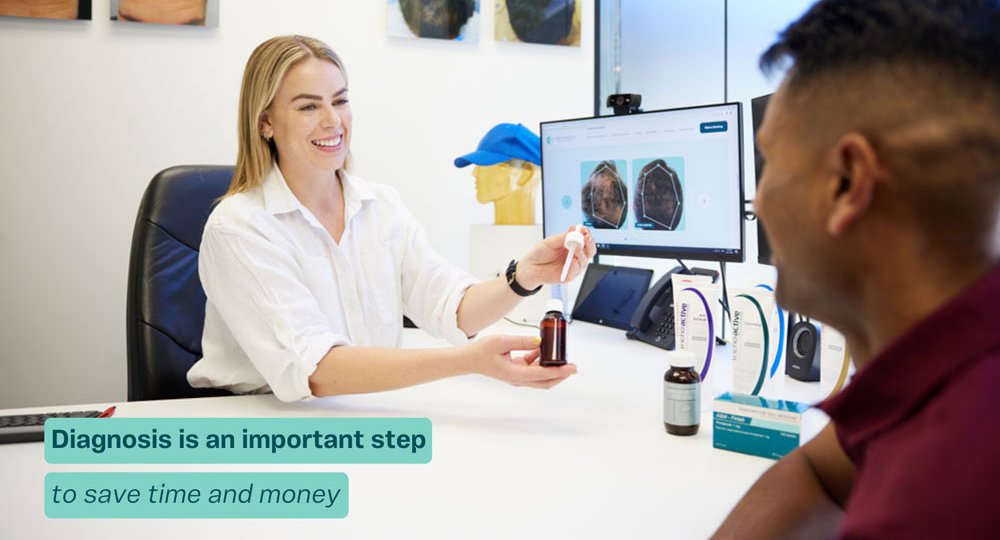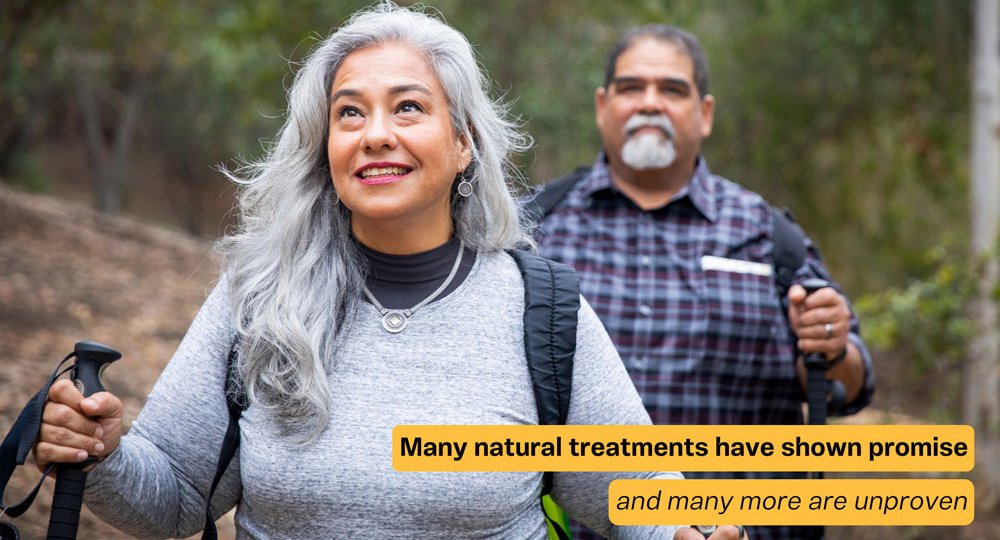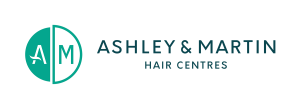What works when it comes to natural hair loss treatments?
Natural hair loss treatments offer hope for those seeking alternatives to medications with potential side effects. Whether due to personal preferences, pregnancy, or age, many individuals opt for natural remedies to address hair thinning and promote new growth. In this comprehensive guide, we delve into the most effective natural solutions, from supplements to herbal extracts, helping you distinguish between what truly works and mere wishful thinking.

Consultation: A Crucial Step
When considering natural remedies for hair loss, it’s vital to understand that not all treatments work universally. Factors such as genetics, hormonal imbalances, inflammation, and nutrient deficiencies contribute differently to each individual’s condition. To maximize results and avoid wasting time and resources, consulting with a specialist to diagnose the underlying causes is paramount.
Hair Loss Supplements
Ensuring proper nutrition is essential for healthy hair follicles. While a balanced diet plays a crucial role, supplements can also aid in addressing deficiencies. Some beneficial supplements include:
Biotin (Vitamin B7)
Supports keratin production, promoting hair health.
Omega-3 Fatty Acids
Found in fish and flaxseed oil, they nourish follicles and reduce inflammation.
Vitamin D
Crucial for follicle stimulation, deficiency linked to hair loss.
Iron
Important, especially for women, in combating hair loss caused by deficiency.

Herbal Remedies
Certain herbal extracts have shown promise in promoting hair growth and combating hair loss:
Saw Palmetto
Inhibits DHT production, particularly effective for pattern baldness. (1)
Green Tea Extract
Rich in antioxidants, it reduces inflammation, benefiting hair health. (2)
Hair Loss Shampoos
While some shampoos claim to contain beneficial ingredients like caffeine and saw palmetto, their effectiveness is often limited. Quality shampoos, preferably sulfate-free and pH balanced, primarily maintain scalp hygiene to create an optimal environment for other regrowth treatments.
Other Drug-Free Options
Recent advancements have introduced non-invasive devices for hair growth, including:
Laser Hair Growth Caps
Utilize low-level laser therapy to stimulate follicles. (3)
Dermarollers
Stimulate collagen production but lack extensive long-term evidence. (4)

Unproven Treatments
Despite popular beliefs, some natural remedies lack scientific backing:
Onion Juice
Sulfur content claims unsubstantiated by adequate studies.
Aloe Vera
Moisturizes but lacks direct evidence of hair regrowth.
Coconut Oil
Limited efficacy in stimulating significant regrowth.
Egg Wash
Protein delivery efficacy questioned compared to balanced diets.
Seek Professional Advice
While natural treatments offer promise, individual effectiveness varies. Consulting with specialists ensures tailored treatment plans addressing specific causes of hair loss. Free consultations provide comprehensive options and personalized plans for confident and effective results.
In conclusion, while natural remedies offer hope for hair loss sufferers, consulting specialists and understanding individual needs are essential for achieving optimal results.
References
- National Library of Medicine, “Natural Hair Supplement: Friend or Foe? Saw Palmetto, a Systematic Review in Alopecia”https://pubmed.ncbi.nlm.nih.gov/33313047/
- National Library of Medicine, “An Overview of Herbal Alternatives in Androgenetic Alopecia”https://pubmed.ncbi.nlm.nih.gov/30980598/
- National Library of Medicine, “Role of Low-Level Light Therapy (LLLT) in Androgenetic Alopecia”https://www.ncbi.nlm.nih.gov/pmc/articles/PMC8906269/
- National Library of Medicine, “Microneedling and Its Use in Hair Loss Disorders: A Systematic Review”https://www.ncbi.nlm.nih.gov/pmc/articles/PMC8776974/

